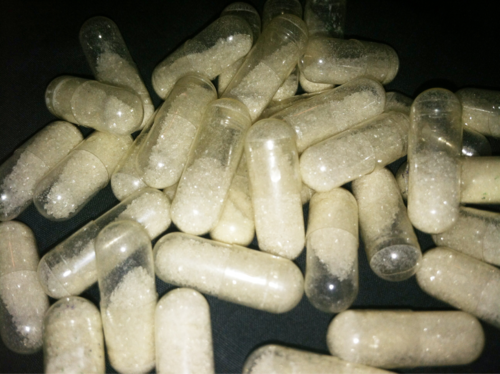The profound effects of ecstasy on the brain occur when you take the “love drug.” MDMA, ecstasy, or molly has been known to stimulate the activity of a minimum of three neurotransmitters. Neurotransmitters work to transport messages through brain cells that help you perform functions.
By increasing the activity of neurotransmitters, ecstasy makes you feel euphoric and full of energy. The three neurotransmitters known to be affected by MDMA are serotonin, dopamine, and norepinephrine. Ecstasy works like amphetamines, so ecstasy’s effects on the brain stimulate brain activity.
Neurotransmitters are stored inside the brain and are released when ecstasy is consumed. The effects of ecstasy on the brain result in a massive release of serotonin, while dopamine and norepinephrine are released in somewhat lesser quantities.
Serotonin, The Most Significant Neurotransmitter
Among these three neurotransmitters, serotonin is the most significant. Most of the studies based on the effects of molly on the brain focus on the impact of serotonin release. Serotonin is important because it directs essential body functions such as:
- Emotion
- Appetite
- Sleep
- Pain
- Mood
An increase in serotonin activity inside the body distorts standard behavior patterns. The brain needs a large amount of serotonin to function correctly. When serotonin is released, the brain loses one of its crucial neurotransmitters.
MDMA Use Associated With Depression
Many people report feeling depressed after coming down from MDMA. This depression is most often mild and lasts for a day or two.
However, some regular users that take higher doses or use it more frequently report feeling depressed for more extended periods after coming down from MDMA.
Most people, however, do not experience any depression while ingesting MDMA. So what is all the fuss about?
What Causes Some Users to Feel Depressed After Ingesting MDMA?
The Depletion of Serotonin
MDMA releases large amounts of serotonin into the brain. The release of serotonin causes people to experience an elevation of mood, feelings of empathy, and emotional closeness with those around them.
Escasty depletes the brain by releasing large amounts of serotonin, which takes the brain time to replenish the serotonin that was released.
So how long does it take for the serotonin levels to be fully restored after someone ingests molly?
It depends on your general health, the amount you took, your genetic makeup, diet, and other random factors.
So there is absolutely no way to tell; however, based on animal studies, scientists conclude that it could take 48 hours to an entire week.
So the mild depression some people experience could be due to the depletion of serotonin.
Too Much Serotonin in The Brain
The release of serotonin also causes the receptors to turn themselves off for a while. The brain tries to achieve balance through the up and down regulation of receptors. These receptors work in conjunction with serotonin and the regulation of mood.
The brain will maintain a balanced mood by responding to the amount of serotonin by turning itself on and off. Many of those receptors will turn off when the brain is flooded with serotonin from ingesting ecstasy.
The majority of receptors will turn on again as soon as the excess amount of serotonin is metabolized. Nevertheless, some receptors may stay off longer, perhaps for days, weeks, or months.
So the depression some users feel may result from serotonin receptors turning off for too long. How often this happens may essentially be due to a genetic factor unique to each individual.
Some people may be genetically predisposed to experience depression after ingesting MDMA.
Preexisting Depression
Some individuals who were previously depressed before ingesting molly might become depressed after consuming molly. Depression is a common mental illness that is usually untreated and undiagnosed. This is true for many teenagers and young adults who experience mild to moderate depression.
Many MDMA users may try to self-medicate their depression by ingesting MDMA. Ecstasy has been proven to be effective in treating patients with severe depression. However, it is not safe to self-medicate yourself without a medical professional.
Are There Ways to Reduce The Risk of Depression While Ingesting MDMA?
Absolutely. Below are a few suggestions that can make a difference.
Moderation
Frequent use of MDMA increases the likelihood of individuals experiencing depression.
Moreover, you should take the recommended dose according to your body weight. You should also wait a couple of months before you ingest MDMA again.
Eat Well
Your body produces serotonin by combining various amino acids. Maintaining a well-balanced diet that includes enough protein and proper vitamins and minerals will help you stay healthy and avoid serotonin depletion.
Sleep
Your brain’s restorative processes mainly take place while you sleep. Not sleeping well may significantly lengthen the time your brain takes to replenish serotonin.
Take Lower Doses
Do not take “booster doses” or take more when you come down. When you come down from MDMA, your brain has already depleted a lot of serotonin. So taking booster doses will lengthen the time your brain takes to replenish the lost serotonin.
Advantages of 5HTP in Ecstasy Comedown
Many molly users report that 5-Hydroxy-Tryptophan (5-htp) helps reduce depression caused by ingesting MDMA. The amino acid supplement (5-htp) is a direct precursor to serotonin in the brain.
5-Hydroxy-Tryptophan is found in most health food stores as an herbal supplement and is extracted from Griffonia seeds.
Clinical studies have shown that 5-htp has successfully relieved symptoms of depression in many people. The supplement relieves these symptoms by increasing the amount of 5-htp in the brain, allowing the brain to produce serotonin.
Supplementing with 5-htp may lessen post-E depression by quickly restoring your body’s serotonin levels.
The advantages of taking 5-htp are:
- Improving your mood
- Appetite
- Sexual function
- Body temperature
- Reduce post-E depression
- It helps restore your body’s serotonin levels
Clinicians widely prescribe 5-htp to help prevent depression, anxiety, and sleep disorders. Furthermore, 5-htp can also be used to treat drug addiction and rehabilitation, especially for ecstasy users.
